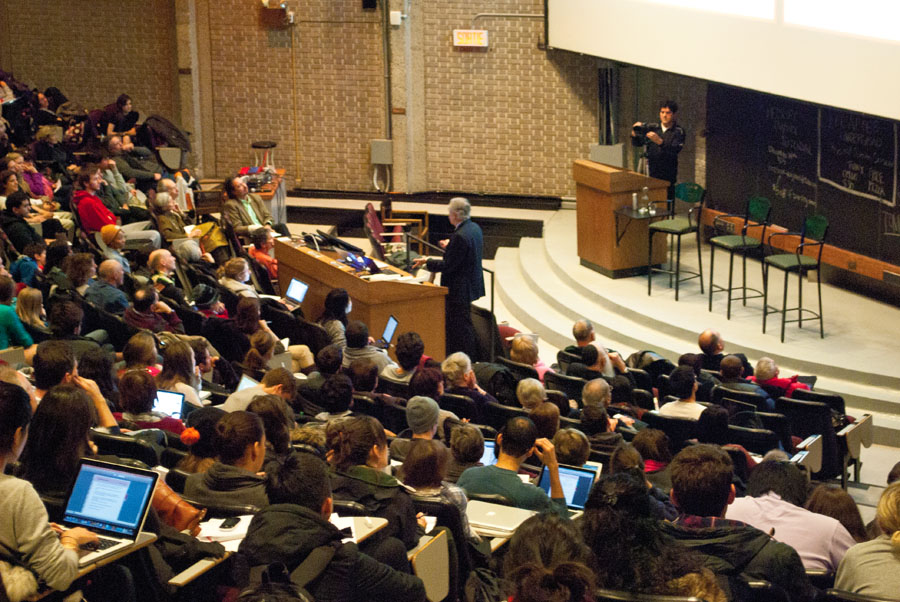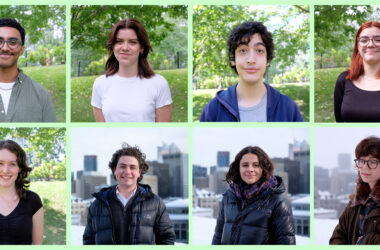Over the course of the post-secondary experience, there are countless opportunities to branch out from your field of study. Electives can challenge students to see their degree in a new light, gain a more holistic perspective of what is available for study at McGill, bump up your GPA, and ultimately have a more well-rounded university experience. Whether you’re trying to fine tune your schedule, or have just realized that you need one more elective this coming year, the Tribune has you covered. Ditch the long lines at advising, and turn to the Tribune’s hand-picked suggestions for electives for the 2016-2017 school year before add-drop period ends!
Study the secrets of the galaxy
For those who aren’t quite ready to say goodbye to high school physics and science, either of the following courses will satisfy your curiosity. Neither course is open to students in a physics program, which means that new learners can feel comfortable in the classroom, free of any pressure from physics whizzes.
Fall 2016: Space, Time, and Matter (PHYS 180)
PHYS 180 takes the math out of physics–to the extent that this is possible–and introduces students to the concepts behind some of the greatest theories in the field, including Newtonian mechanics and Einstein’s theories of relativity.
Winter 2017: Milky Way Inside and Out (PHYS 183)
PHYS 183, an introductory astronomy course, covers everything from black holes to supernovae. A bit of background in the sciences wouldn’t go amiss in this class, but even without, you’ll be stargazing like the pros in no time; however, if you aren’t interested in astronomy, it might be best to look into one of the Tribune’s other suggestions.
For the foodies who can’t be sated
Winter 2017: World of Chemistry: Food (CHEM 181)
A classic elective at McGill, CHEM 181 is one of the Faculty of Science’s most popular courses. Students will learn about their own diets and nutritional intake, as well as about how food research is portrayed in the media. If you’d rather avoid denser chemistry courses and have a penchant for memorization, this class will be right up your alley.
For the tech savvy
Fall 2016 & Winter 2017: Foundations of Programming (COMP 202)
If you’ve taken a stab at CodeAcademy–or just finished binge-watching Mr. Robot–and want to know more about the logic behind coding, delve into the world of computer programming in COMP 202. This is the go-to computer science course for non-computer science students, as it provides an introduction to Java coding before easing you into some of the more complex concepts.
Bear in mind that this course is not a walk in the park for those lacking any background in computer programming; however, in this day and age it is never a bad thing to seek a greater understanding of coding. Just be prepared to practice at it most days, as you would when learning any language.
For keen listeners
Fall 2016 & Winter 2017: Popular Music Since 1945 (MUAR 392)
Music lovers, rejoice. Consider this a superior alternative to the Art of Listening (MUAR 211) at a slightly higher level. Not only does MUAR 392 cover everything from jazz to pop, it also goes into the institutions behind the music.
For the discerning viewer
Winter 2017: Media and Feminism Studies (COMS 310)
Although COMS 310 requires either permission from the instructor or completion of prerequisites, you will not regret making the extra effort to take this course. Through this class, students are introduced to feminist and queer theory as it pertains to media studies while encouraged to hold a critical lens to the media. If this course interests you, hop on it quickly or set up a notification for when a seat becomes available—this class is a popular one, and spots fill up quickly.









